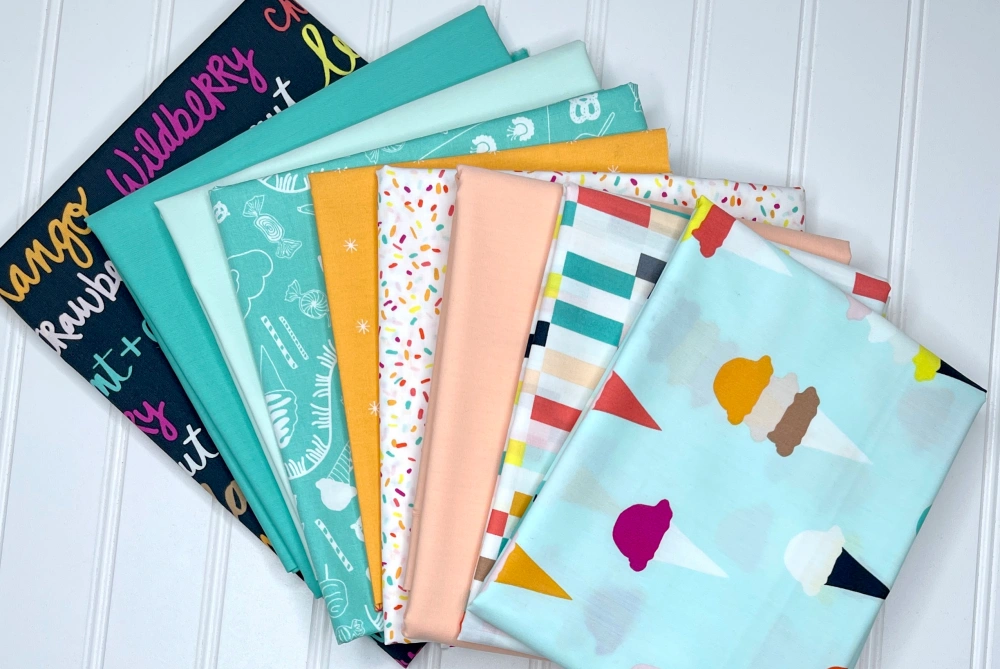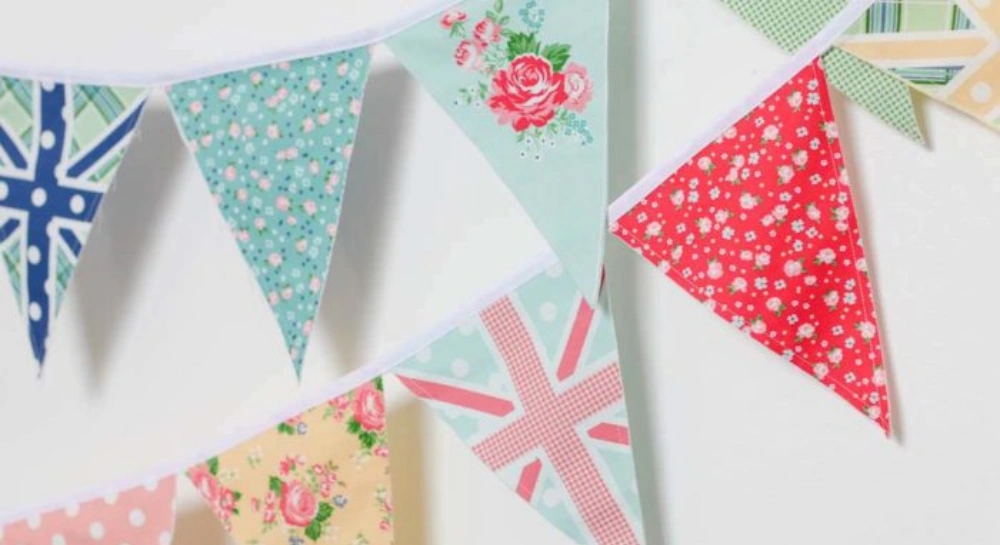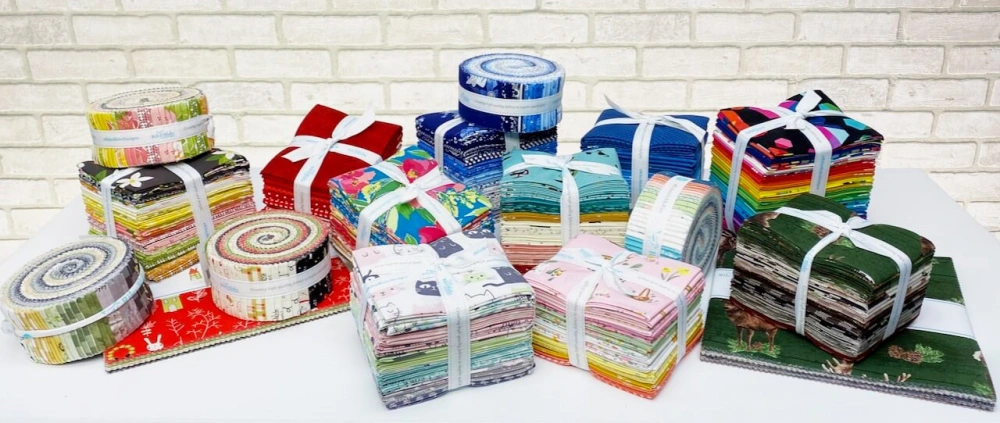You can create beautiful homemade bunting in just a few easy steps. All you need are some basic materials and a little creativity. Grab Fanda Fabrics‘ Quilting Fabric Bundles or Batik Patchwork Fabric for vibrant flags. If you’re wondering how to make bunting, check out the most common supplies below:
Material Type | Examples |
|---|---|
Fabric | Cotton, Oil Cloth, old plastic tablecloths |
Paper | Construction Paper, Design Paper |
Decorative Items | Ribbon, twine, string, washi tape |
Other | Sewing kit, fabric glue, laminating sheets |
Making bunting is fun and beginner-friendly—just start with your favorite fabrics and let your imagination guide you.
Key Takeaways
Choose high-quality fabrics like those from Fanda Fabrics for vibrant and durable bunting that lasts through many celebrations.
Follow simple steps to create your bunting: wash fabric, make templates, cut flags, and sew or glue them together.
Use pre-cut fabric bundles to save time and ensure a professional look, especially for no-sew bunting projects.
Personalize your bunting by mixing different fabrics and patterns to match your event’s theme or your personal style.
Troubleshoot common issues like fraying edges or uneven flags with easy fixes, ensuring your bunting looks polished and professional.
How to Make Bunting: Materials and Tools

Choosing Fabric from Fanda Fabrics
Picking the right fabric is the first step in making bunting that stands out. You want your flags to look vibrant and last through many celebrations. Fanda Fabrics’ Quilting Fabric Bundles and Batik Patchwork Fabric make this easy. These bundles offer a mix of colors and patterns, so you can create bunting with a unique look.
The batik fabric features tight weaves and bold designs, which help reduce fraying and keep your flags looking neat. Pre-cut bundles save you time and let you jump straight into crafting.
Tip: High-quality fabric means your bunting will hold up better, even if you hang it outdoors or reuse it for different events.
Here’s why Fanda Fabrics is a great choice:
Vibrant colors and unique patterns
Durable material for long-lasting flags
Pre-cut convenience for quick projects
Reduced fraying for a polished finish
Essential Tools for Bunting
You don’t need fancy equipment to make bunting at home. Most supplies are easy to find and simple to use. Here’s a quick list to get you started:
Selection of fabric panels or bundles
Lightweight fusible interfacing (for extra structure)
String, twine, or ribbon
Bias binding tape (for attaching flags)
Matching thread
Sewing needle or sewing machine
Scissors and ra otary cutter
Cutting mat and ruler
Pins and fabric marker
Iron and ironing board
Paper and pencil (for flag templates)
Optional: point turner for crisp corners
Materials/Tools | Description/Details |
|---|---|
Fabric | Quilting cotton, batik, or pre-cut bundles |
Cutting Tools | Scissors, rotary cutter, cutting mat |
Sewing Supplies | Needle, thread, sewing machine, pins |
Binding Tape/String | Bias tape, ribbon, or twine |
Marking Tools | Fabric marker, tailor’s chalk, pencil |
Ironing Supplies | Iron and ironing board |
Choosing quality materials and the right tools makes your bunting look professional and last longer. You’ll notice the difference when you use sturdy fabric and sharp cutting tools. If you want your flags to keep their shape, add a layer of interfacing before sewing.
Step-by-Step Guide to Make a Flag Bunting

Ready to learn how to make bunting that looks amazing for any occasion? Follow these simple steps and you’ll have a festive string of flags in no time. You can use Fanda Fabrics’ Quilting Fabric Bundles or Batik Patchwork Fabric for a professional finish. If you want extra structure, try adding Fanda Fabrics’ Batting or Cotton Quilt Batting between your layers.
Cutting and Preparing the Flags
Let’s start with the most important part—your flags! Most people love the classic look of triangular flags, but you can choose any shape you like.
Wash and Dry Your Fabric
Always wash and dry your fabric first. This helps prevent shrinkage later and keeps your bunting looking crisp.Make a Template
Draw a triangle on paper or cardboard. A good size for each flag is about 7 inches wide at the top and 9 inches tall. Use a ruler for straight edges.Tip: If you want thicker flags, cut two triangles for each pennant. Pair them with the wrong sides together before sewing.
Cut Out Your Flags
Place your template on the fabric. Trace around it with a fabric marker or tailor’s chalk. Cut out as many flags as you need. You can mix and match colors and patterns for a fun look.Add Structure (Optional)
If you want your flags to feel sturdy, cut a piece of Fanda Fabrics’ Batting or Cotton Quilt Batting for each flag. Sandwich it between two fabric triangles.Sew the Flags
Pin the triangles together. Sew along the two diagonal sides, leaving the top open. Trim any uneven edges. Turn the flags right side out and press with an iron for sharp corners.
Attaching Flags to a String or Ribbon
Now you’ll connect your flags to make a flag bunting that’s ready to hang.
Choose Your String or Ribbon
Pick bias tape, ribbon, or twine. Bias tape works well because it’s easy to sew and looks neat.Arrange Your Flags
Lay out your flags in the order you want. Make sure the tops line up evenly.Space Your Flags
Spacing matters! For indoor bunting, leave about 1 inch between flags. For outdoor bunting, use 3-4 inches. For fabric bunting, 2 inches is ideal.Type of Bunting
Recommended Spacing
Indoor
1 inch
Outdoor
3-4 inches
Fabric
2 inches
Pin and Sew
Fold the bias tape or ribbon over the top edge of each flag. Pin in place. Sew along the tape, catching the top of each flag as you go. If you prefer, use heavy-duty fabric glue instead of sewing.Note: If you want ties at the ends, sew or knot extra ribbon or fabric strips.
Hanging Your Bunting
You’re almost done! Here’s how to make bunting look its best when you display it.
Pick Your Spot
Find a place to hang your bunting—across a wall, above a doorway, or outside for a party.Secure the Ends
Use hooks, nails, or adhesive strips to attach the ends. If you added ties, knot them around a pole or railing.Adjust and Enjoy
Spread out the flags so they hang evenly. Step back and admire your handiwork!
🎉 You now know how to make bunting that’s sturdy, colorful, and perfect for any celebration. Using quality materials like Fanda Fabrics’ Batting or Cotton Quilt Batting adds softness and a vintage touch. Your bunting will last for years and look great every time you use it.
Quick and Easy No-Sew Bunting
If you want to make bunting fast, you can skip the sewing machine and try no sew directions. This method works great for beginners or anyone who needs decorations in a hurry. You can finish a string of flags in less than an hour. You just need fabric, string, and a few simple tools.
Using Pre-Cut Fabric Bundles

You can save time by starting with Fanda Fabrics’ pre-cut Quilting Fabric Bundles. These bundles come in a variety of colors and patterns, so you don’t have to spend time matching fabrics.
Grab three different prints, each about a quarter yard. Use no-sew directions to cut triangles or rectangles for your flags. Double the fabric and cut two flags at once. You can use a paper template to keep your shapes even.
Tip: Pre-cut bundles from Fanda Fabrics make no sew bunting look professional, even if you’re new to crafting.
Here’s a quick table to help you choose your supplies:
Item | Why It’s Useful |
|---|---|
Pre-cut fabric | Saves time and matches easily |
Paper template | Keeps flag shapes consistent |
Bias tape or twine | Holds flags together |
Hot glue or Wonder web | Fast, strong attachment |
Fastening Without Sewing
You can follow no-sew directions to attach your flags without any stitching. Lay your flags facedown and use hot glue to stick the top edge to bias tape or twine. If you want extra strength, try Wonder Web. You can also loop fabric strips through twine and pull them tight. This creates a fun, textured look.
Here’s a simple way to fasten your bunting with no sew directions:
Cut your twine to the length you want.
Lay out your flags in order.
Apply hot glue along the top edge of each flag.
Press the flag onto the twine or bias tape.
Let the glue dry before hanging.
🎨 No-sew bunting lets you get creative with colors and shapes. You can mix prints, add pom-pom trim, or use fabric scraps for a rustic style.
If you want a quick project, no-sew directions are the way to go. You’ll have festive bunting ready for any party or room in minutes.
Bunting Tips and Creative Ideas
Troubleshooting Common Issues
Even if you follow every step, you might run into a few bumps while making bunting. Don’t worry—most problems have easy fixes. Here’s a quick table to help you solve the most common issues:
Issue | How to Fix It |
|---|---|
Uneven Flags | Use a cardboard template and trace each flag for consistent shapes. |
Fraying Edges | Fuse interfacing to your fabric or use pinking shears to prevent fraying. |
Flags Won’t Hang Straight | Cut fabric on the straight grain and iron each flag after turning. |
Messy Seams | Press seams flat with an iron for a crisp, polished look. |
Flags Slide on String | Use bias binding to keep flags in place and make stringing easier. |
Tip: Keep your bias binding on the roll as you attach flags. This helps you handle long lengths without tangling.
You can also speed up your process by using a rotary cutter for cutting multiple flags at once. If you’re in a hurry, try using interfacing for quick flag production.
Customizing Your Bunting
Personalizing your bunting makes it extra special. Fanda Fabrics gives you endless options for creativity. Try mixing different fabrics like batik, gingham, or even lace for a unique look. You can combine floral prints with geometric patterns to match your party theme or room decor.
Experiment with textures—burlap, tweed, or lace- to add a nostalgic touch.
Mix and match tones and patterns from Fanda Fabrics’ bundles for a playful or elegant style.
Follow DIY tutorials to learn new techniques, like adding appliqué or pom-poms.
Here’s how different fabric patterns from Fanda Fabrics can change your bunting’s vibe:
Fabric Pattern | Style Influence |
|---|---|
Batik | Lively and festive |
Gingham | Classic and rustic |
Ogee | Modern and eclectic |
Ditzy | Cheerful and playful |
Geometric | Bold and contemporary |
Want a quick update for a holiday? Try a quick-sew or no-sew banner using pre-cut bundles. You can swap out colors and patterns for every season or celebration. With Fanda Fabrics, your bunting always stands out and feels personal.
Conclusion
You can make bunting that fits any celebration—birthdays, weddings, or baby showers. Homemade bunting lets you show off your style, save money, and get creative with friends or family.
Fanda Fabrics gives you charm packs, beginner-friendly guides, and tips for mixing patterns. You help the planet by choosing sustainable fabrics. Visit Fanda Fabrics for more ideas and supplies.
Making bunting is easy, fun, and lets you create something unique for every occasion. Give it a try!
FAQ
How do you keep fabric bunting from fraying?
You can use pinking shears to cut your flags. Try adding a layer of fusible interfacing. If you want extra protection, sew a zigzag stitch along the edges.
Tip: Pre-washed fabric from Fanda Fabrics helps reduce fraying!
What’s the best way to hang bunting outdoors?
Choose sturdy ribbon or twine. Space your flags a bit wider. Secure the ends with hooks or strong tape. If you want bunting to last, pick weather-resistant fabric like Fanda Fabrics’ batik.
Outdoor Hanging | Best Practice |
|---|---|
Ribbon/Twine | Use strong material |
Hooks/Tape | Secure tightly |
Can you make bunting without a sewing machine?
Yes! You can use fabric glue, hot glue, or iron-on adhesive. Pre-cut bundles from Fanda Fabrics make no-sew bunting quick and easy. Just glue your flags to ribbon or twine and hang.
How long should your bunting be?
Measure your space first. Add a little extra for tying or draping. For most rooms, 6–10 feet works well. You can adjust the length for bigger parties or outdoor spaces.
What fabric works best for bunting?
Cotton and batik fabrics from Fanda Fabrics work great. They hold their shape and show off bright colors. You can also use oilcloth or felt for a different look.
🎨 Mix patterns and textures for a fun, custom style!
